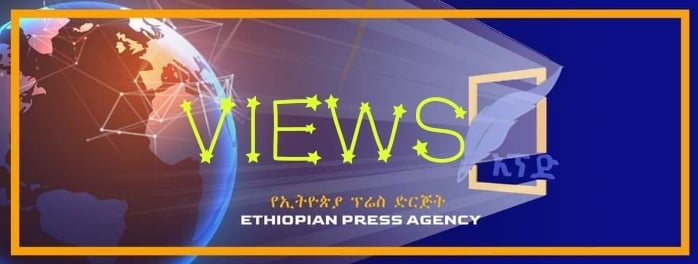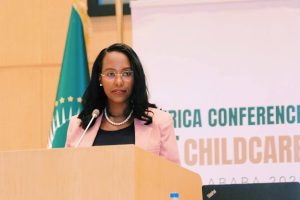
BY DEJEN RAS AND HIBONGO DESTA
The term diaspora refers to people settled far from their ancestral homelands. In the Ethiopian context, the word was started to be used by the late PM-Melese Zenawi to refer to the large group of people who have moved out from Ethiopia to different places all over the world. Since then, anyone who lives outside of the country is called a diaspora. It has become one of the social phenomena. Even though it is not an Amharic word, it is now a recognized construct representing a group of people that plays a significant role in the different aspects of a country.
It can be economic, political, diplomatic, justice, and even security aspects of the country, the diaspora is vigorously engaged. Even at times, it has become a force shaping the political and economic landscape of the country. It is a recent memory that diasporas were among the forces that brought the 2018 change in the country. Even the government in Ethiopia has been engaging the diaspora for decades. But its policies and management are not yet fully developed. Hence there is a need to look deeper at the diaspora identity.
In this piece, we want to shed light on five different types of diaspora groupings. The groupings have developed through time, and it is wise to understand them, so that the diaspora community contributes to civilized and constructive discourse, toward the wellbeing and welfare of the people and the country. Categorizing all Ethiopian diaspora only into five groups might not be fair, but we thought it can give a picture of the current versatile discussion. It might help us balance our discourse with others looking at these groupings among the diasporas. Some diasporas have individual identities, while others have group identities, and they may come under different categories.
Five Categories of Diaspora Identity
1. Economic-oriented Diaspora (EoD). We can agree that one of the driving factors in the phenomenon of many Ethiopians leaving their ancestral homeland, inheritance, people, and country behind and flooding out to another country is an economic one. It is safe to say that many diaspora communities from Ethiopia dispersed all over the world, left the country seeking a better life. But among these, there are those who are more economic and business-oriented ones who want to profit from almost every activity and opportunity.
2. Political-oriented Diaspora (PoD). These are people who are highly engaged in the political affair of the country. Most of these people left the country during the Derg and EPRDF governments to escape persecution. Some of them are human rights, equality, and justice advocates; others could be university students, journalists, opposition party members, and so on.
3. Group-based Diaspora (GbD). These are more oriented to a particular group. The group can be ethnic, religious, political affiliation, or any other grouping. Given one western country or a state or region in that country, the dominance of diaspora group/identity varies. For example, in some countries or states where people from the Gondar or Oromia region dominate. The alliance with a political party or individual elites varies from place to place too. Hence, most of the diaspora in the GbD category do not want to exclude themselves from the norm set by the majority of their group. Their safety net is defined by camouflaging together, no matter whether the size of the group is small or big. The group can be defined also by religion, political affiliation, friendship, even at times by football club fun too.
4. Scholars and Professional Diaspora (SPD). The diaspora individuals or groupings are those who are highly educated and trained people. They are scientists, doctors, professors, engineers, lawyers, or educators who occupy universities, hospitals, research centers, international organizations, and gigantic technology companies worldwide. They are not a lot as compared to the millions of Ethiopians diaspora in general.
5. Silent Majority Diaspora (SMD). These are those who are mostly quiet at some given point and incident. Some of them follow the discourse in the country and while others may not have any interest at all. At any given time these groups of the diaspora could be the majority.
Discourse Agenda Setter among Diasporas
Very few diaspora members are well known for setting the agenda of the day. Those in categories PoD and EoD are the usual ones who come out via YouTube, Facebook, or Twitter spaces and shape the discussions. They interpret events happening in the country using their own political or economic interest. The silent majority of the diaspora follow them. Especially, the digital Woyane are highly trained and experienced in designing the agendas as they want.
After the recent defeat of the TPLF/TDF force, they designed a crafty scheme to divide. For example, they have managed to make the recent disappointments from the #NoMore movement, dealings with Fano in the country, the inflation as well as political negotiations towards national dialogue as entry points for dividing the united diaspora. As a consequence, the larger Ethiopian diaspora is either disillusioned or getting polarized and getting bitterly divided again.
Versatile Discourse
EoD might be involved in the economy of their home country actively. Hence any discourse and issues around the economy can be highly sensitive to them. When one region in Ethiopia gets hundreds of tractors, they will be excited if that is their region, otherwise, they will express their jealousy and anger in different ways. Economical advantage and opportunity drive them. If the government is facilitating opportunities without discrimination and ethnic bias, they will highly be a positive force in the country. But on the contrary, if they suspect bias and corruption, this might switch their mood for the worst and their discourse could be more of frustration, complaining, and at times antagonistic to the existing system. For them, the economy might be everything. If they experience discrimination due to their ethnic background or any other grouping they will react swiftly.
While PoDs are the ones that want direct involvement in the political discourse. They may be pro or against ethnic federalism or the government. The number of PoD is not that much as compared to EoD. But their voice is too loud, and they occupy the space of the political discourse. They are not shy in sharing their opinion and meaning at every stage and opportunity they get. Hence, they dominate the conversation about the affairs of the country.
The GbDs are different in nature. Religious and ethnic groupings are among the common ones. But there are many different local groupings that can involve different ethnicities, religions, and political orientations. One block of ethnicity may behave in the same way in a given country. Partially, it might be the main reason why they get residence in the country they live in. Hence, they cannot behave differently.
SPDs are used to engage individually. In recent years, there are more signs of coming together in groups in different professional and scholarly groups. They aspire to help their home country in their respective experts and fields. They work with universities, organizations, and communities. They usually avoid major political discourse. They do not want to come out and align themselves to some political grouping, but they actively discuss within small groups of interest they have formed over the years. Few SPDs have managed to set up a constructive discourse with individuals at different institutions back home, and are able to collaborate, but most SPDs are constantly looking for an opportunity to engage without being distracted by unfruitful discourse.
SMDs are those who are silent in any discourse. They may be family men and women, or they may be that hard-working and family-supporting person who has no extra time to engage in a hot political and economic debate in the country. Since they can belong to one of the above categories too, they may be the followers and listeners of every YouTuber, facebooker, or Twitter space host. Hence, they are susceptible to those who are seeking influence. At times they may share their concern or excitement, but to a larger extent, they are inactive in the diaspora discourse. Very few even seem to not care about the status of the country, but if you get closer to them, you find out that they too care for their homeland.
Diaspora is a huge force for transformation
Ethiopian diaspora is not the first in the history of mankind that is highly engaged in the well-being of the home country. The Diaspora Jews are very well known in this aspect. It is possible to mention two examples. In the 5th century BC, under the leadership of Nehemiah, who supervised the rebuilding of Jerusalem after his release from captivity by the Persian king Artaxerxes I, the diaspora Jews participated in many ways: finance, rebuilding, raising the moral and spiritual life of the people. Another example was after the Second World War, they came back from all over the world to rebuild their country. In both these two events, the diaspora Jews have undergone challenging but constructive discourse among themes elves.
Many more diasporas like the Indians, Mexicans, the Philippines, Chinese, and so on have been the engines of the economy of their countries in the 20th century. In this regard, the Ethiopian diaspora has played a huge role in the past two decades alone. To highlight one of the impacts of the diaspora community could be the way they stand for their country in the past two years after the war between the government and TPLF forces broke out. The propaganda and diplomatic war were totally won by the enemies of Ethiopia at the beginning. However, when the diaspora came in unity, they managed to debunk it all. In the end, the 1991 type defeat of Ethiopian forces was averted. It seems the enemies have understood the key role played by the diaspora community. Now they are devising subtle strategies to divide the diaspora and it seems it is working for them.
It is vital to understand this scheme of the enemies of the country. They plan and invest highly to apply the old British strategy: divide and rule. Without that they cannot win, hence they try to turn every opportunity to build their narratives. The diaspora and even the people in the country should be vigilant and be aware that there are different identities and grouping among the diasporas. Knowledge, understanding, and wisdom can help us all to make a constructive discourse across the aisle for the benefit of the country and its people. To the Ethiopian Diaspora, please come out from your disappointments, discouragements, and complaints. Be critical but constructive and help your home country and people! “United we stand, divided we fall”
Editor’s Note: The views entertained in this article do not necessarily reflect the stance of The Ethiopian Herald
The Ethiopian herald June 21/2022



